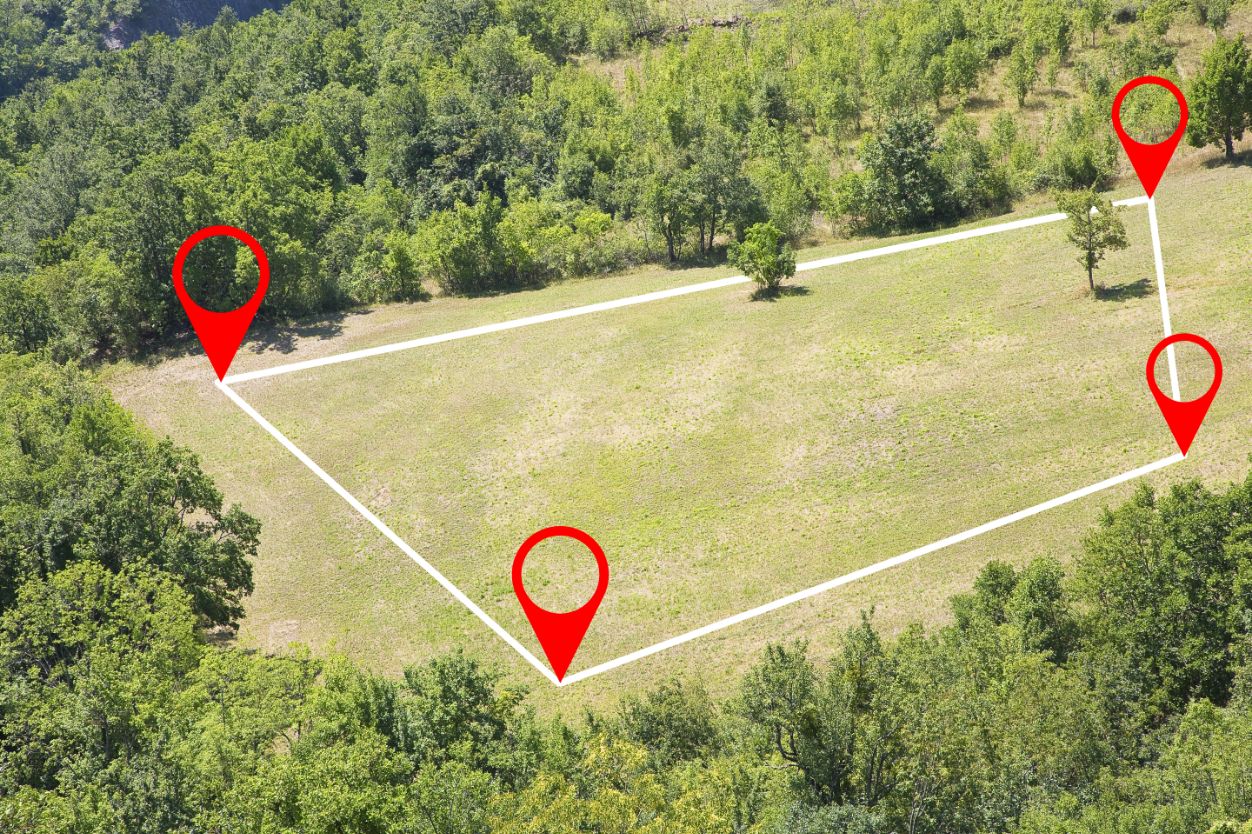When looking for the best real estate leads, having access to the most detailed and expansive datasets is crucial. However, sorting through them effectively is also important if you want to find the best options in the least amount of time.
This is why at PropStream, we offer 20 Lead Lists to help you find a specific demographic in just minutes. These Lead Lists are great for identifying motivated sellers or leads who may need to use a service you offer.
Psst! In addition to our Lead Lists, you can apply 160+ other filters to narrow your search even more.
To help you become familiar with our Lead List options, we’ve created a guide walking you through what each Lead List name means and why leads that fit these criteria are worth pursuing.
Table of Contents
- Auctions
- Bank-Owned
- Bankruptcy
- Cash Buyers
- Divorce
- Failed Listings
- Flippers
- Free & Clear
- High Equity
- Liens
- On Market
- Pre-Foreclosure
- Pre-Probate
- Senior Owners
- Tax Delinquency
- Tired Landlords
- Vacant
- Vacant Land
- Zombie Properties
- Upside Down
1. Auctions
This Lead List can be used to identify properties (typically that are distressed or “delinquent”) that will be sold at an auction. When applying this Lead List, properties with a Notice of Sheriff’s Sale or a Notice of Trustee’s Sale will appear.
Targeting auctions benefits flippers or rental landlords looking for properties they can score for below-market value who don’t mind rehabbing them.
2. Bank-Owned
If a property is not sold at auction, it then enters foreclosure or REO (Real Estate Owned) status. Using the Bank-Owned Lead List can help you identify properties that have been repossessed by a bank or lender.
Similar to a property that is being sold at auction, a bank-owned property can often be bought at a discounted price, ideal for investors who intend to renovate anyway.
3. Bankruptcy
If a homeowner has an active Chapter 7 or 13 bankruptcy filing, their property will appear using this Lead List.
Bankruptcy can be an indicator that the homeowner is no longer able to afford their property. As an investor, this may be an opportunity to make an offer so they can get the property off of their hands and avoid foreclosure. Or, as an agent, you may be able to help the owner sell.
4. Cash Buyers
As the name suggests, the Cash Buyers Lead List allows you to find homeowners who purchased a property with an all-cash offer. In other words, this homeowner doesn’t have a mortgage on their property.
There are a few reasons you may want to target a cash buyer:
- If you’re an investor who struggles to secure traditional financing, you may need to look for funding more creatively. Performing all-cash transactions can indicate wealth in a homeowner, making them a potential funding source for your next opportunity.
- Without a mortgage, homeowners may be ready to take out a new loan for renovations on the property, making them a potential new client for a lender/loan officer.
- If a homeowner is ready to renovate their property, they may need a contractor to help, making them a client lead for contractors as well.
5. Divorce
If a homeowner has a divorce filing, they are flagged, and their property will appear when you apply this Lead List.
It’s common for homeowners to sell their property when getting divorced. In this case, a divorce filing can indicate selling motivation for an agent interested in listing the property or an investor who wants to purchase it.
6. Failed Listings
When an agent is listing a property and cannot sell it on the MLS, it is considered a “failed listing.” There are various reasons a listing can fail to sell, like the asking price being too high, the marketing not drawing buyers to the property, unexpected inspection results, etc.
Since the homeowner has already shown interest in selling the property, this lead type benefits any real estate professional looking for motivated sellers.
7. Flippers
If a property is for sale on the MLS and was purchased within the last 24 months, this homeowner is considered a “flipper.”
Knowing which homeowners are frequently buying and selling properties can be helpful for agents because it suggests a potential client with consistent business to offer. This same idea applies to lenders and loan originators, as a flipper may need to obtain new loans with each flip.
8. Free & Clear
Properties that have been paid off or have no open mortgages are considered “free & clear.”
Like the Cash Buyers Lead List, free & clear status can indicate wealth in a homeowner, suggesting they may have extra funds to loan on the right deal or for activities requiring a loan themselves.
9. High Equity

If a homeowner has “high equity” in their property, this is classified in PropStream as:
- 50% or more equity
- Less than a 50% LTV (Loan-to-Value) Ratio
- $100,000+ in equity
High equity can indicate that a homeowner may be ready to take out a HELOC (Home Equity Line of Credit) or Home Equity Loan to make improvements to their property - information that is beneficial to lenders and contractors.
10. Liens
A property lien is a legal claim placed against a property when a homeowner has debts they have not paid.
The Lien Lead List will pull up homeowners with various lien types placed on their properties. Liens can indicate financial strain for a homeowner, which may motivate them to sell.
Pro Tip: Want to find properties with specific lien types? You can stack an additional lien filter to find properties with tax, HOA, mechanics, and other lien types.
11. On Market
When a property has an MLS status of Pending, Contingent, or Active, it is considered “on market” in PropStream.
An on-market property suggests that the homeowner will soon purchase a new home once they’ve sold their current one, offering potential client leads for an agent or lender.
12. Pre-Foreclosures
Pre-foreclosure is when a homeowner has missed too many mortgage payments, and the lender has filed a default document. Types of default documents filed for a pre-foreclosure property include a Lis Pendens, Notice of Default, Notice of Sheriff’s Sale (Auction), or Notice of Trustee’s Sale (Auction).
Identifying homes in pre-foreclosure can be helpful for real estate professionals looking for motivated sellers. Since the home may be taken from the owner if they can’t make the mortgage payments, an investor can potentially help this homeowner by making them an offer. Or, an agent may be able to help by listing the property for them.
13. Pre-Probate
Pre-probate is a classification given to a property when one of the owners is deceased.
Since surviving family members may not be able to maintain or pay for the property once the owner is deceased, this can indicate selling motivation for an agent or investor.
14. Senior Owners
The “Senior Owners” Lead List pulls up properties with owners who have:
- Owned the property for more than 25 years
- A senior tax exemption on file
- An open reverse mortgage
Senior owners may be motivated to sell if the property no longer suits their lifestyle needs (e.g., not accessible for certain disabilities, more space than necessary after children have moved out, etc.).
15. Tax Delinquency
When a homeowner cannot pay property taxes on time, the county tax assessor may file a tax delinquency for the homeowner. Similar to Lead Lists like Liens, Pre-Foreclosure, and Bankruptcy, the Tax Delinquency Lead List may indicate a financial hardship and selling motivation.
16. Tired Landlords
When a landlord has owned a rental property for more than 15 years, PropStream classifies them as a “tired landlord.”
This type of landlord may be ready to sell and move onto another opportunity using the equity they’ve built in their property, indicating a potential motivation to sell.
17. Vacant
Properties that are flagged “vacant” by the US Postal Service will appear when you utilize the Vacant Lead List in PropStream.
Vacant properties can be excellent lead sources for investors and agents. When a homeowner is paying for a property that they aren’t staying in or using for income, this may be a financial burden for them, and they may need help getting it off of their hands.
18. Vacant Land

Any piece of land that does not contain physical structures is considered “vacant land.”
Like with vacant properties, an owner may hold onto land they no longer need because they are having difficulty selling it. In this case, an agent’s help or an offer from an investor may be appealing.
19. Zombie Properties
When a property is flagged vacant and in pre-foreclosure status, it is known as a “zombie property” in PropStream.
Since zombie properties have two indicators of selling motivation, they can be an excellent lead source for investors and agents.
Which PropStream Lead Lists Will You Utilize?
No matter what real estate niche you specialize in, PropStream has various Lead Lists to help you identify valuable leads in just minutes.
Want to see these Lead Lists in action? Try PropStream for 7 days free, and enjoy 50 leads on us!
